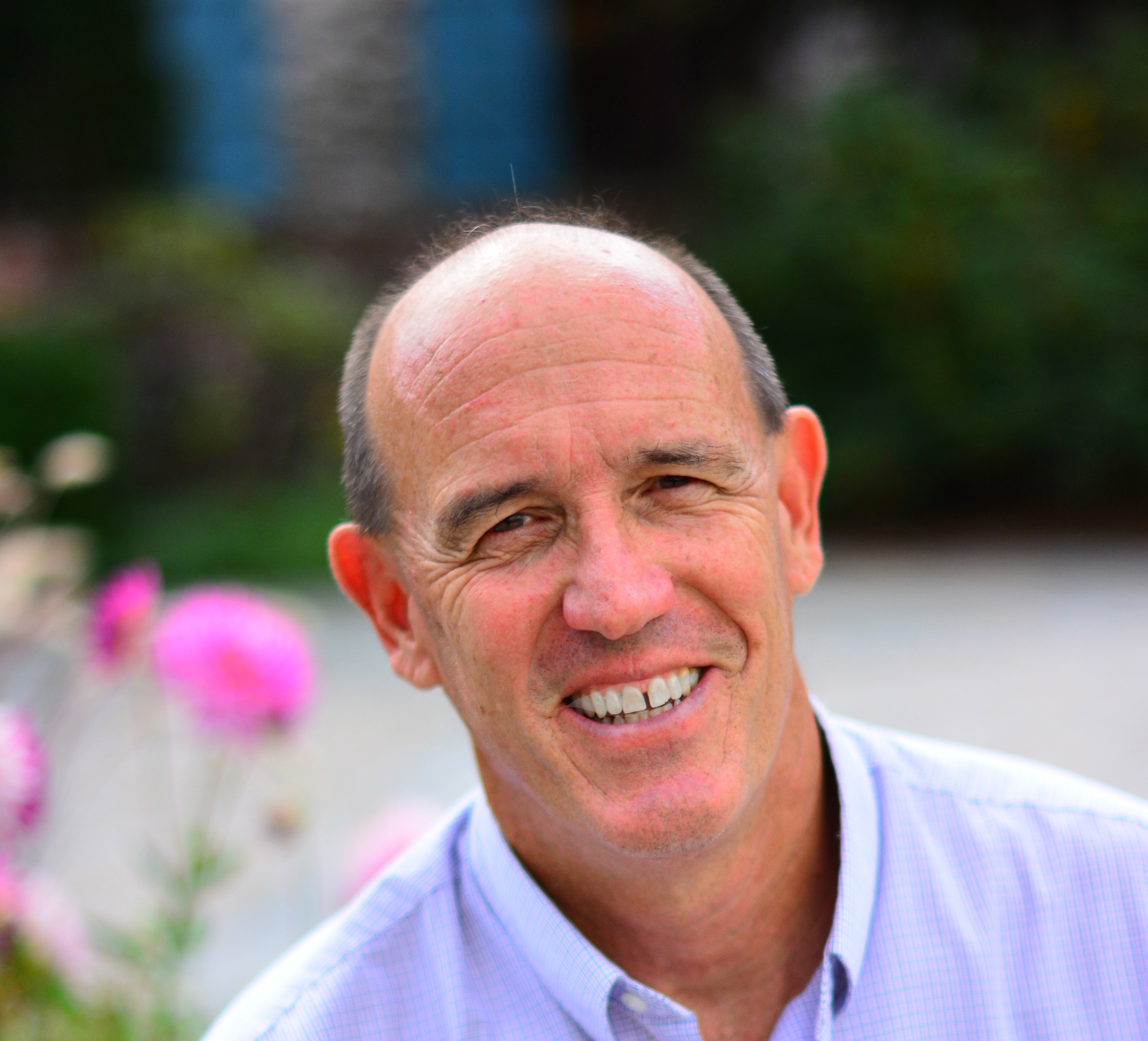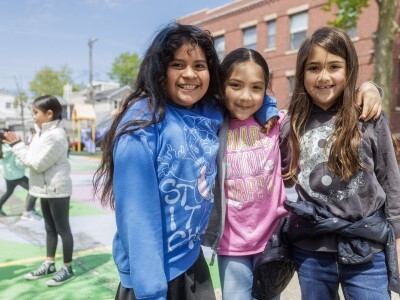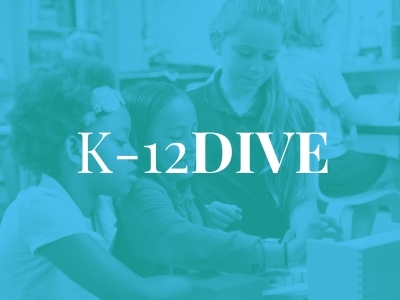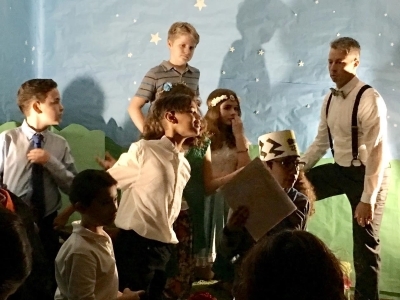4 Big, Timely Questions at the Heart of All Schools’ Missions
Topics
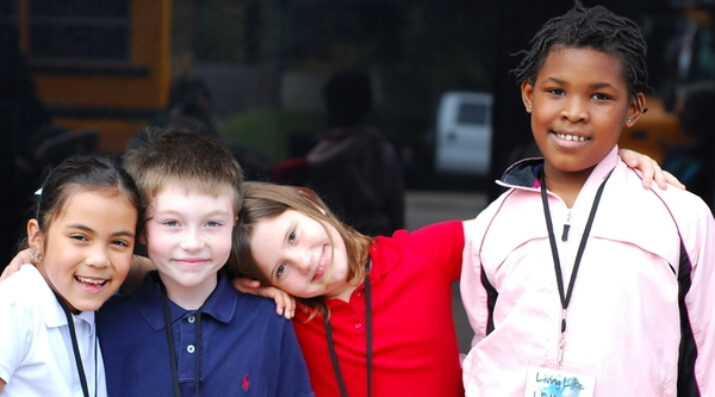
Today’s learners face an uncertain present and a rapidly changing future that demand far different skills and knowledge than were needed in the 20th century. We also know so much more about enabling deep, powerful learning than we ever did before. Our collective future depends on how well young people prepare for the challenges and opportunities of 21st-century life.
These questions examine the relationships among wellness, JEDI (justice, equity, diversity, inclusion), global citizenship, and empathy in schools and our lives.
Over the last decade leading schools have striven to create a deeper learning experience that is more student-centered than teacher-centered; more inquiry-based than proscriptive; more experiential than rote; more personalized than homogenous. This has been the uber-trend: creating a more engaging and meaningful learning experience. There has been another set of currents that flowed at the edges of transformation for many school leaders, often as ambiguous words in a vision or mission statement, there because we felt they could not be left out, but rarely lived with the authenticity and vivacity that they deserve: wellness, JEDI (justice, equity, diversity, inclusion), global citizenship, and empathy.
Then came the tumultuous 2020-2021 school year with its quadruple punch: pandemic shut-down, economic crisis, reawakening of the social justice movement, and (in the U.S.) the most divisive political year in generations. Within this context, these sub-currents took on new meaning. They grabbed our attention. We found an urgent and compelling need to actually live these elements of our shared mission and vision. I want to explore the relationship of these four themes: wellness, JEDI, global citizenship, and empathy, not because I have any of the answers, but because I think we are finally positioned to ask some new and important questions about them.
I have been working during this highly challenging year with a number of schools that courageously decided to accelerate out of the disruption curve rather than press their foot to the brake. It is critical to state that these schools have the resources to be courageous, while others, due to the deep and pervasive inequities in our education system, are struggling to just maintain their most basic services and identities. But amongst those fortunate enough to grab this moment, these four themes often rise to the top. At The York School in Toronto, the leadership team is asking a set of questions that I have not heard before. They are asking, in essence, what is the hierarchy, if any, of wellness, JEDI, global citizenship, and empathy? Is there an experiential horse that must come before the learning cart? Are these equal parts of an unsolvable chicken-and-egg koan? Or are they best represented by a four-circle Venn diagram of nearly complete overlap?
I want to share four questions that educators should take on. I know there are many more. I absolutely don’t pretend to know the answers, nor even how the follow-on questions and discussions might be framed. I am pretty sure that there is no universal right answer for all school communities and also that the answers will likely demand that schools make some dramatic changes to what and how we teach and learn.
1. Does everything rest on wellness?
Wellness, or wellbeing has gradually floated higher in our collective consciousness over the last 10-20 years. We know that rates of physical and mental wellness amongst our youth continue to decline due to a number of factors, including school-induced stress. While I deeply believe that the vast majority of educators would place the wellbeing of their students at the very top of any list of systemic priorities, it is the rare school that matches where they place their focus and resources with this theoretical top billing.
If the current school year has taught us anything it is that student and adult wellness are inextricably tied to how, and how well, our students learn. If the uber-outcome of all schools is great learning, how can the choices we make and the resources we allocate in this most human-centric system not be uber-oriented around an axis of wellness? Does wellness belong at the aspirational apex of some new pyramid of priorities for our schools? Or does it belong as the one essential building block at the foundation of our learning construct? Can we hope to increase wellbeing at our schools without going all-in on empathy and JEDI? Can a human who does not express empathy for others, who does not commit to JEDI as a set of universal life outcomes, be seen as “well”?
Is wellness, in fact, the universal North Star of schools toward which we should all align our mission, vision, and strategic designs? If not, why not? If so, how must we radically disrupt the school operating system to align with this mission critical goal?
2. Can global citizenship be developed outside the context of JEDI?
Over the last two decades, we have recognized that the world has become increasingly interconnected. We understand that it is imperative for our students to matriculate to this world with at least some familiarity with those whose life experiences are very different from their own. Our students will increasingly work, connect, and live with people from all over the world. We want them to gain comfort as a member of a global community, alongside the more traditional affinities to family, state, social tribe, or nation.
We have created curricula with greater diversity of voices and stories of the human past. We send our students into the community for a day or a week to “serve” those less served. Wealthier families send their kids overseas during spring or summer break. Undoubtedly through this, some of our students gain greater understanding of a broad yet increasingly interconnected world.
I wonder, though, whether the warp of this learning has any real meaning without a much richer weft of focus around justice, equity, diversity, and inclusion. How can our students learn authentically about global connections and their own place within them without a prior and deep understanding of how JEDI, particularly the lack thereof, has inextricably shaped the world as it is today? Is a deeper understanding of global human failures around JEDI a prerequisite of learning to become a better global citizen, or is it the other way around? Can a school claim that they are developing global citizens without a radical step-up in learning around JEDI?
3. Can any of us advance our personal efficacy around JEDI without first learning to be truly empathetic?
When I first began chronicling the big themes of education transformation with my #EdJourney book and trip around the U.S. in 2012, the importance of empathy was mentioned at most of the schools I visited, yet with little definition around how to teach it or where it fit into the learning experience. It has become an increasingly essential word in that long list of lofty but vague platitudes that often fill our mission statements. Gradually we have started to see programs and curricula that begin to give us concrete tools with which to tackle the challenge of creating more empathetic human beings.
With the geyser-like recognition last year in just how badly we have failed to meet the moral demands of JEDI, I wonder if we finally will put empathy at the very top of that list of skills with which we hope to imbue our students and ourselves. Where was empathy when the greatest minds of our educational generation staked out the skills needed for the 21st century: creativity, critical thinking, communication, collaboration, and the others that all seemed to start with the letter “C”? Did we fail to place empathy amongst these because we were comfortable with not knowing “the other”? Or did we fail because of a collective ignorance that in overlooking empathy we continued to be complicit in the moral failings of an unjust, inequitable social system? Where, then, does empathy reside on the portrait of our graduates?
4. Can deep, impactful learning take place at all with these four themes relegated to the margins of our curriculum and the corners of our daily lives?
As I tried to concisely describe in my most recent book, Thrive, successful schools, like all other organizations, must deliver on what they promise; this is the nature of a strong value proposition. Most educators know the best way to ensure delivery is through the process of reverse engineering, or backward design. We start with the outcomes we seek and work backward to the activities that will deliver those outcomes, and finally, the resources we need to sustain those activities.
For the vast majority of schools, the four themes I have focused on here have not previously risen to the level of must-achieve outcomes. They live in our mission statements, but they have been lost amongst all of the other competing, important, and growing expectations that are placed upon our schools. Are skills like empathy and staying well as critical to long-term learning as are literacy and numeracy? Are deep experiences around the issues of JEDI and one’s place in a shrunk world as essential, or more so, than a good score on the (vanishing?) SAT or ACT? If we truly value these outcomes, will they form a big chunk of student assessment, or will we stay enslaved to A-F grades and 100-point quizzes? What curricula will we let go to make room for learning these skills?
The Year of Disruption gives us a powerful opportunity to raise these questions, and many more. The biggest question remains: will school leaders and communities take on these challenging conversations, or will they default to the easy past, even when we know better?
Photo at top courtesy of Montessori for All.

